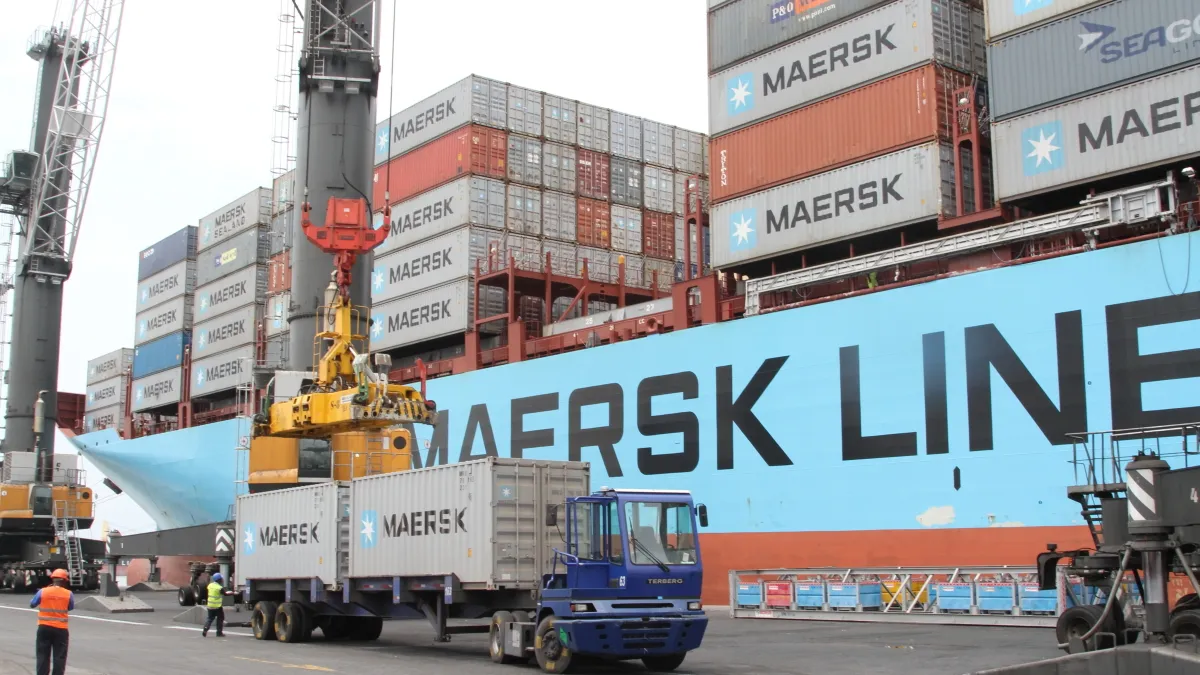Dive Brief:
- Maersk Line just closed its acquisition of Hamburg Sud for $4.4 billion on Tuesday according to a press release, almost exactly a year after announcing its intention to acquire the smaller shipping line.
- The deal's conclusion depended on a year-long vetting process, in which Maersk sought 23 regulatory approvals.
- Over the course of a year, Maersk has made a number of concessions in order to conclude the merger, including selling its Mercosul Line to CMA CGM (per the European Union's request) and withdrawing from a number of trade agreements (per the European Commission's request).
Dive Insight:
It's been a long year for Maersk. The shipping line has endured endless regulatory scrutiny, shifted operations to comply with regulatory demands and garner approval for the acquisition, and on top of all that suffered a severe cyberattack that cost the company around $300 million.
To understand Maersk's long journey to acquisition approval, here's a brief timeline to jog the memory:
-
December 1, 2016
Maersk Line announces acquisition of Hamburg Sud for around $4 billion.
-
March 22, 2017
Initial ruling on the acquisition moved from March 27 to April 10.
-
April 7, 2017
Maersk agrees to sell its Mercosul Line per the European Union's request.
-
April 11, 2017
The European Commission approves the acquisition on the condition that Maersk withdraws from some European trade lanes.
-
June 13, 2017
Maersk sells its Mercosul Line to CMA CGM.
-
September 25, 2017
Brazil approves the acquisition without conditions.
-
November 7, 2017
China approves the acquisition on the condition that Maersk "refrain for five years from entering new vessel sharing agreements with its main competitors" and withdraw Hamburg Sud from a VSA.
-
November 28, 2017
Maersk issues a press release announcing closure of the deal for $4.4 billion.
Timeline of the Maersk-Hamburg Sud acquisition approval
The acquisition will increase Maersk's market share from 15.7% to 19.3%, according to Seatrade Maritime News. One of the biggest concerns regarding the merger was whether Maersk would have an unfair foothold in the market with the Hamburg Sud on board.
Maersk certainly has a pretty strong grip on the shipping industry, especially in Brazil, where the company will now control 59% of trade.
As a case study, the deal points to a consistent trend of consolidation in the industry throughout the past year, and it's important because it reveals the tension and fragility puncturing the industry.
That includes consolidations and antitrust fears, cyberattacks, fierce debates over rate transparency, alliances to boost shrinking capacity after drowning in overcapacity and a fundamental shift in logistics following that string of alliances.
Despite the regulatory scrutiny, the number of consolidations in the past few years points to an uncertain future: competition will be limited, and shipping rates will rise while the bigger shipping lines seek to boost profitability with more mergers and acquisitions.













